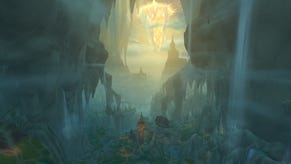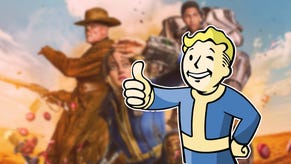Far Cry 5: The Personality Of A Cult
The antagonist in the latest Far Cry is a religious cult. We explore how Ubisoft looked towards the real thing for inspiration.
This article first appeared on USgamer, a partner publication of VG247. Some content, such as this article, has been migrated to VG247 for posterity after USgamer's closure - but it has not been edited or further vetted by the VG247 team.
In late 2014, Ubisoft began planning the game that would come to be known as Far Cry 5. While the previous Far Cry titles explored violence tied to religion in far off fictional countries or eras, the team wanted to try something different with Far Cry 5. This entry would be rooted in American culture, in the heart of mid-West. The themes would be the same, but with a viewpoint unique to the United States.
"I think the first idea we knew what we wanted was very simple. It's almost like a Western where somebody pulls up and they're looking down on a town, population whatever. For me, it was a modern day equivalent of that. That was the very beginning," says Far Cry 5 executive producer Dan Hay.
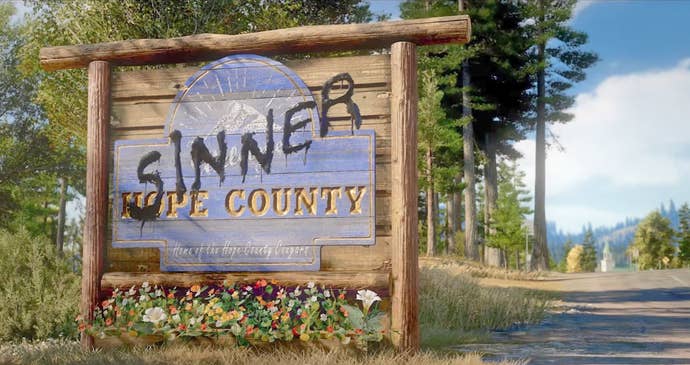
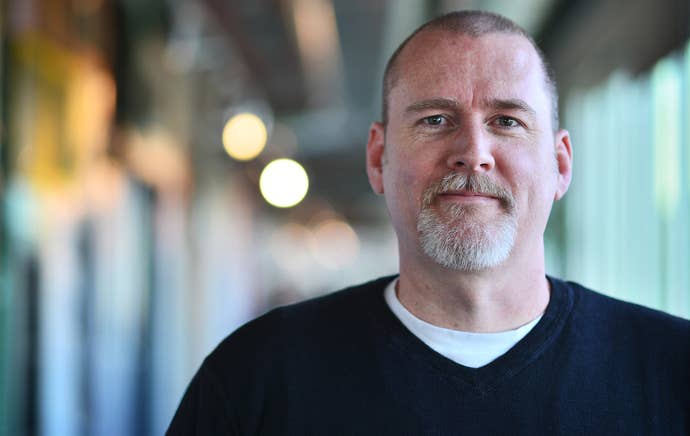
The question then came: what sort of threat would create a modern day Western? What type of group could create a pocket of anarchy and lawlessness within America today? Surely, that couldn't actually happen, right?
"As soon as the cult came up, this concept of a character that believes and has this quotient of faith, it became very real for us very quickly. In the past, we've made characters that were pretty much crazy. They were crazy for the sake of being crazy. This time what we wanted to be able to do was imbue this person with this concept of faith, this idea that they're right and the ends justify the means. Once we started to see that, learn about cults, and understand the idea of a magnetic leader, it became very real," says Hay.
When you think about a 'cult', your mind probably jumps to pop culture. Mola Ram in Indiana Jones and the Temple of Doom, cutting out hearts before a giant effigy. Lovecraft's shrouded Esoteric Order of Dagon. Marvel Comics' sprawling cult of Hydra.
"When you guys think about a 'cult', at least when I thought about a cult before Far Cry 5, they were wearing this weird druidic robes and they were chanting. When we learned about it, we learned that it's an organization. It's a process, it's a project. People have things they do to make this process work," says Hay.
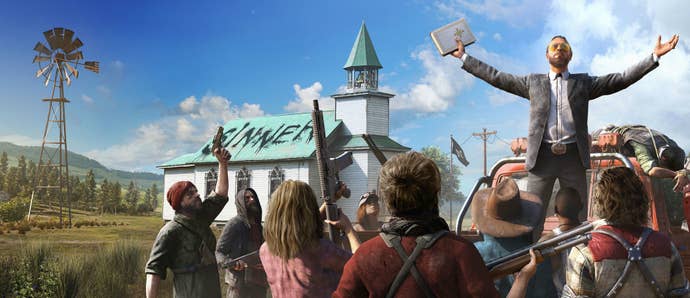
The villain in Far Cry 5 is The Father. He believes the end is nigh and if humanity is to survive, his family needs to begin preparing and saving souls. The fictional Hope County, Montana is where The Father decides to enact his grand vision: converting the townsfolk whether they like it or not, and building the infrastructure for his group to survive the proposed apocalypse. That group is the Project at Eden's Gate. At the head of the cult is The Father, and under him is his foster family. Children who grew up together in a troubled situation and have come together again as adults.
Each member of the family has a focus. Little sister Faith Seed is there to keep the congregation drugged and happy. John Seed is face the of the cult, in charge of invitation, conversion, and coercion. Jacob is the older brother, the hammer, there to train the cult's holy soldiers and protect the group.
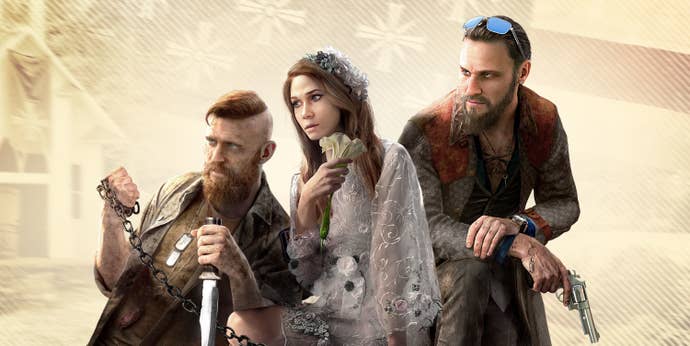
The situation in Far Cry 5 is akin to the horrific police raid on the Branch Davidian Compound in Waco, Texas. Law enforcement decides to step in and handle part of the cult; they have a warrant for The Father's arrest. You play a rookie Sheriff's Deputy, caught between a Federal Marshal who wants to go in hard and your Sheriff, who wants to play the situation with a softer hand. Either way, the law coming for The Father causes the cult to flip into a paramilitary takeover of the town.
The police action against the Father is the first sign of the end times for the Project at Eden's Gate. He is their Noah, building bunkers to ride out the apocalypse. But instead of animals, the cult is collecting people, whether they want to go or not. The members of the cult believe that once the world ends, all those folks will thank them for their forethought and insight. And that's where the game starts.
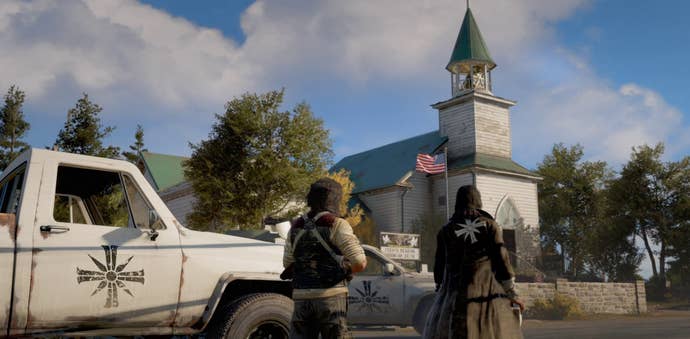
Plotting A Takeover Of An American Town
Once Ubisoft had the 'who', what was next was the 'how'. How does a cult take over an entire city in the United States? Wouldn't local, state, and federal agencies come down upon them like a hammer? Certainly, even in a remote town or country, a cult takeover would be noticed and dealt with.
"How does a cult take control over an environment? How does it work? When you start thinking about the believability of it, would it be believable that they could take over an entire place?" Hay asks. Ubisoft's concept was actually rather simple. Hay outlines how easy it is for a large group to take over local infrastructure and set up shop.
"Imagine you have a farm and all of a sudden you see that your neighbor puts up a For Sale sign. The For Sale sign gets taken down and then 700 people move in next door. It instantly puts your property value in the toilet. When it goes down and nobody's buying but those 700 people, you sell to them. And they spread like a cancer," says Hay.
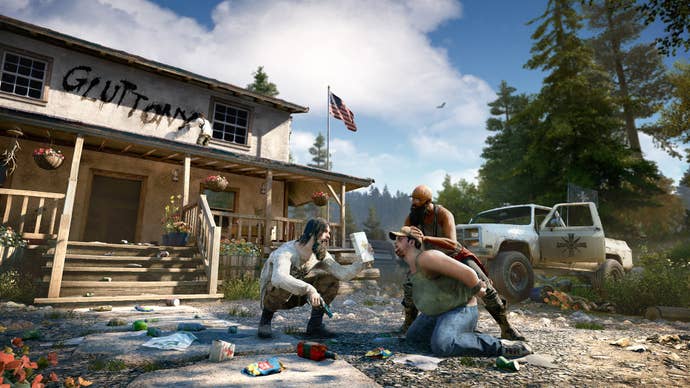
The cult then slowly works its way into the local co-op, the town council. They insinuate their members into the local police or hospital. Eventually, even if a citizen isn't a member of the cult, they work closely with members of the cult. Either they get along, or they move away, and the entire town is under cult control in short order. This is what happens in Hope County and the Far Cry 5 team learned that this is what happens in real-life as well.
Ubisoft needed an expert, so they reached out to one. Enter Rick Ross.
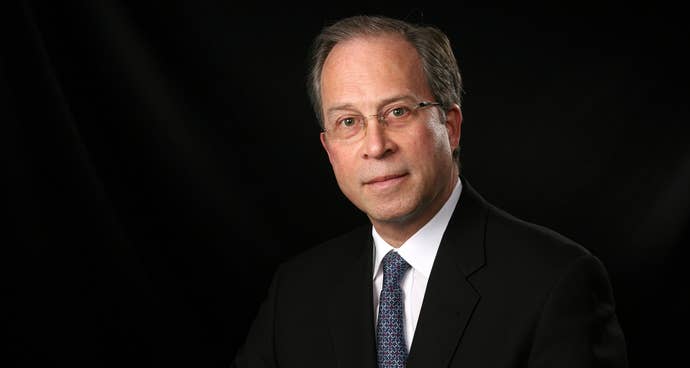
When you think "Rick Ross," you probably think of the rapper. This is Rick Ross, cult expert. He began his work in 1982 as an anti-cult activist. He has done over 500 interventions to date, doing his best to get people out of cults. He's a court expert in the subject of cults, certified at the federal court level in the United States. Ross founded the Cult Education Institute, one of the largest web databases about cults. Ross also wrote a book, Cults Inside Out: How People Get In and Can Get Out, which explores his history with cults while also providing practical advice. He knows what's he's talking about on the topic.
So how does a cult takeover a town in the real world? Not that different from Hay's explanation, actually.
"In my experience, they buy up businesses. A roofing business, a construction business. They start employing a lot of people. They become a significant contributor to the tax base. They move into a depressed area; for example upstate New York has become quite popular. They use their members to redo properties and flip them. They become a really viable part of that area," says Ross. "They become grassroots when it comes to a political situation. They can contribute to a campaign, and in this way certain groups have co-opted local government. This is just part of history."
"I would pitch this to folks and they'd be like, 'That would never happen.' When we talked to Rick, it was nice to get the validation that our ideas were true. We had to prove it, so we had to go to Montana and do the work," says Hay.
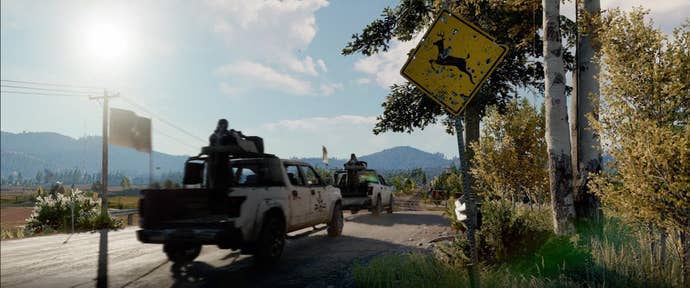
So they did. Ubisoft sent a team to Montana for two weeks. Hay explains that while they were there on the research trip, he noted how his phone didn't work. Without anyone doing anything, one lifeline to his family was already cut off. Hay adds that the team "did some stuff" for research purposes, acknowledging that "people didn't know where we were." They were completely cut off of the rest of the world.
"It's a really eerie sense. A lot of us feel like we're connected all the time. It was a strange sense to be in a place and after 24-48 hours, realize that you're disconnected and no help will come if you're in trouble. And then realize that there's people chose to go there for that reason," says Hay.
Ubisoft wanted to give the player that feeling. It's a modern Western, but they want you to feel isolated when you pick up the controller and step into Hope County. The key to that feeling is making sure that the world they built sticks to a certain reality. And the cult is a large part of that.
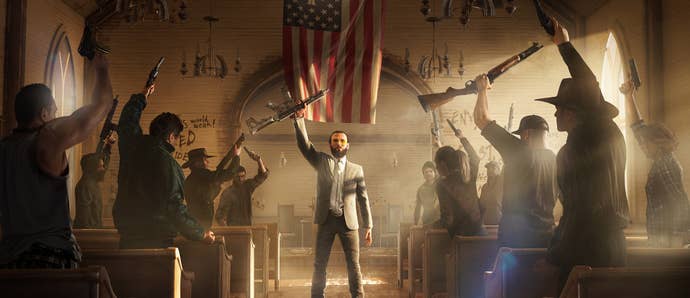
Crafting a Cult
Ross notes that a cult leader like The Father isn't really an anomaly. He calls the process of a cult leader exerting control "coercive persuasion" or "thought reform". Isolation and indoctrination being the primary components of what's essentially brainwashing.
"It's largely dependent on control of the environment," says Ross. "What you find is groups are controlling information, and creating a bubble, where it's an echo chamber where you only hear what they want you to hear. If you can control everything that goes into the brain, you can control the brain itself."
And this can happen to anybody. Ross says that he has deprogrammed well-educated doctors in a few of his interventions. He once intervened to pull out a clinical psychologist. It can happen to anyone, especially with today's technology. You isolate your target, you feed them your message, and then you wait for a situation of distress (or create one), a situation only you have the answer for. The leader is the lifeline.
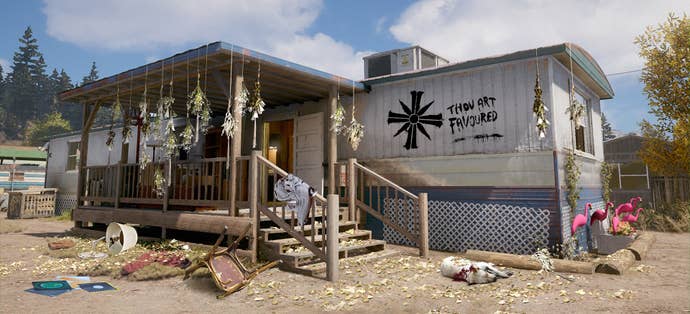
"They are in a box and the only way they can get out of the box is if someone can permeate that control of information and get them to see something from another perspective. Which is becomes increasingly difficult in extreme groups that have compounds, that control housing and communication," explains Ross.
Once control is achieved, the followers no longer think for themselves. This is true of real-world cults, but also The Father in Far Cry 5. Between John and Faith, the Project at Eden's Gate is rather good at convincing people to join and then keeping them under control. Those who you're up against in the game are true believers. They think they're doing the right because that's all they know.
"You can think of a destructive cult like a human body: with arms, legs, a torso, but only one head. That head is the leader, the charismatic leader that functions as the brain. That's where it gets scary. That brain thinks for the whole body. When that brain becomes delusional—a perception that Satan is coming to destroy the faithful, or alien beings are coming from outer space—that brain pulls the entire body."
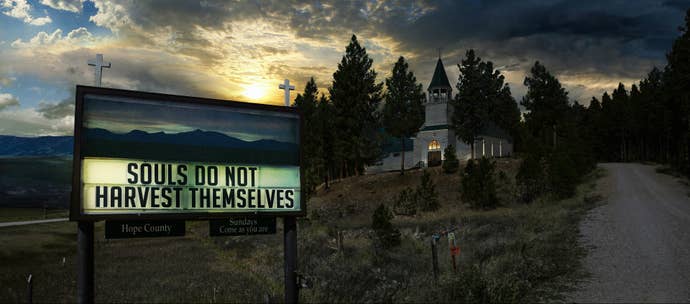
The Frightening Reality Of a Cult
Ross lays out a frightening truth that most people don't think about at all. It's not just history or a thought experiment. It's happening right now.
"This is very common. In the United States, Hilldale, Utah and Colorado City, Arizona are completely controlled by one authoritarian group whose leader is now in prison, Warren Jeffs. He built a huge compound in Texas called Yearning for Zion Ranch, which was absolutely enormous and frightened the people of El Dorado, Texas. They thought originally he was just buying it as a hunting preserve. He took over the area to a large extent," lays out Ross.
"There are a number of compounds like this across the United States," adds Ross.
Ross notes that this has become a court issue within the United States, as the law enforcement in these regions are part of the same group. A cult up to illegal actions can avoid the law simply if the local police never report the crimes in the first place. Ross says that situations like Far Cry 5's fictional scenario have occurred "over and over again" in the United States and elsewhere. Ross says that Ubisoft has been able to tap into that history to paint a chilling picture for folks who don't realize these actions are far too common.
And unlike Far Cry 5, the answers aren't easy in reality.
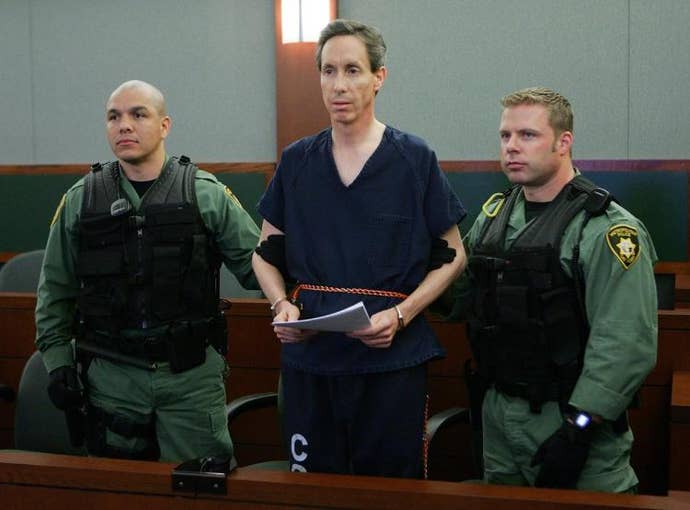
"It's a mess. If you've accepted political contributions and they're a vital part of the economy, you're beholden to them. 400 children were taken out of the Yearning for Zion Ranch because children were being abused. But then what the heck could they do with them? Eventually they had to give them back because the court didn't know what to do with them. There are situations that become very chaotic," says Ross.
Many government officials are reticent to step in because it can become a legal mire. What can you do and where do you stop? A number of religious cults in the United States use things like religious tax exempt status and the First Amendment, the latter to charge the government with infringing on their inalienable rights. Ross notes that many will say "criticism is persecution", even though their holy rituals may in fact be illegal. And if that sounds like social media and the internet, Ross agrees.
"There's no question that groups that have been called cults recruit people through YouTube, or promoting themselves through social media. They use Twitter, they use Facebook. They understand that all of these tools can be used for the recruitment and retention of new members. That's not lost on those groups. There are groups that are almost totally web-based. Their members don't meet physically," he tells me.
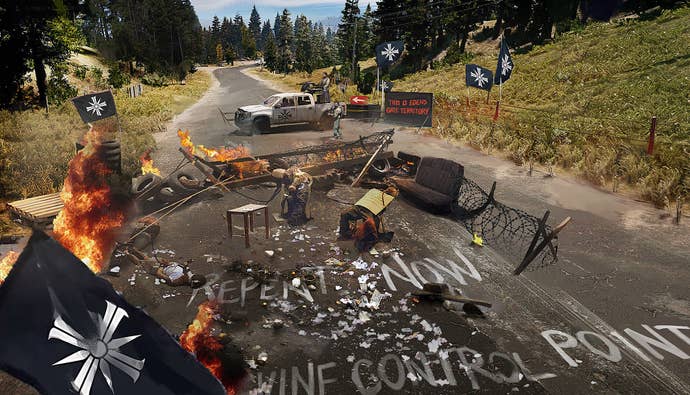
Gaming The System
Given the real-world seriousness of cults, I ask Ross if perhaps a game like Far Cry 5 might not be the best way to explore the concept. If the real-world version is fraught with complexity and nuance, in Far Cry, it's all about point and shoot. Ross points to his work consulting on the film Holy Smoke with Harvey Keitel as a reference point.
"I think Far Cry 5 is really interesting because you watch a movie, but you actually go into [the game]. It's really different. I think the idea of being able to go into this world is really quite fascinating," says Ross. "Holy Smoke was a bit of a comedy. It took dramatic license. I think what Far Cry did is really drill down and tried to make the cult as real as they possible could make. They wanted to make it look real, feel real, and smell real. I think they really did their research very effectively. When I look at Far Cry 5 and see the hierarchy of the leadership and the way that the group is structured, it really resonates with me."
Ross stressed upon Ubisoft that the game had to show that cult members can in some cases be really good people. They can be idealistic and deeply believe in their actions. They don't see them as wrong. There's a symbiotic relationship between the cult leader and followers that overrides moral and ethical boundaries.
Ross calls the People at Eden's Gate a "composite" of various real-world cults. Nothing the group does in-game is too outlandish, and in fact most of it has been done by historical cults. In the end, Ross believes that the game's simplistic view still reflects a certain reality.
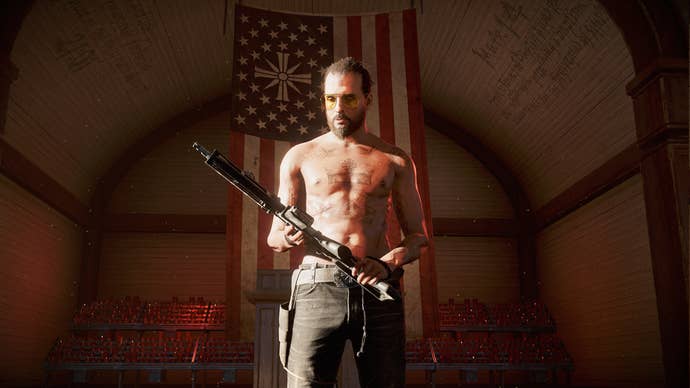
"There are groups that we do not appreciate. We don't like what they believe, we don't like what they do. But when they break the law, that's when they cross the line. And if they break the law repeatedly, eventually, somebody's going to come knocking with a warrant," says Ross. "Historically, some groups have surrendered peacefully. But other groups that have been heavily armed can go through a conflict like what we see in Far Cry 5. That has happened historically. Authorities have sometimes dealt well with groups like this and sometimes they have made missteps. I think Far Cry 5 reflects that."
Far Cry 5 is coming to PC, Xbox One, and PlayStation 4 on February 27, 2018.



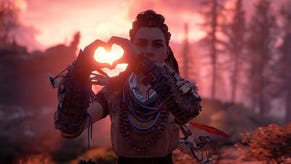

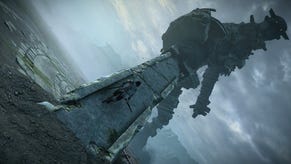
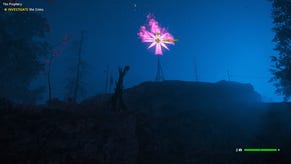
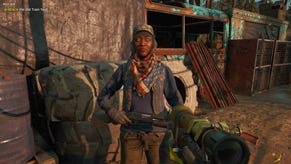

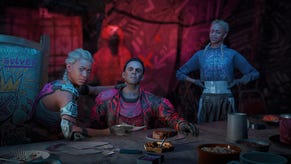

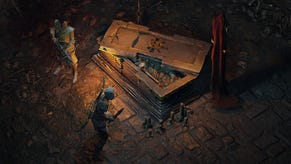
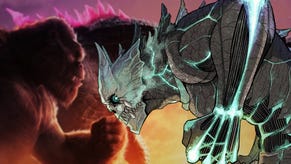
_ddwYK80.png?width=291&height=164&fit=crop&quality=80&format=jpg&auto=webp)
